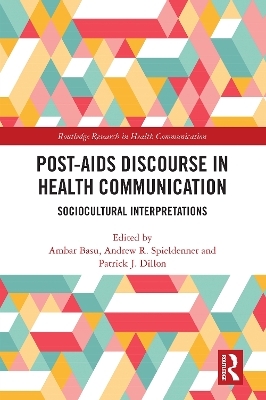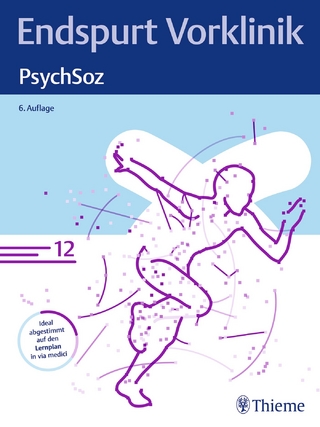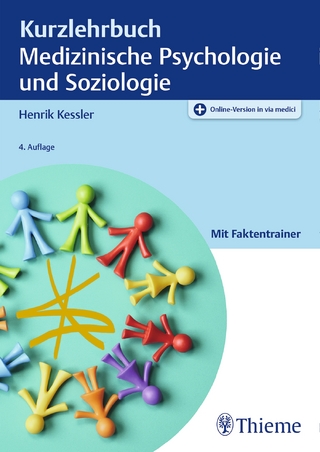
Post-AIDS Discourse in Health Communication
Routledge (Verlag)
978-0-367-43048-1 (ISBN)
The chapters critique and connect meanings of "post-AIDS" to topics such as neoliberalism; race, gender, and advocacy; disclosure; relationships and intimacy; stigma and structural violence; family and community; migration; work; survival; normativity; NGOs, transnational organizations; aging and end-of-life care; the politics of ART and PrEP; mental illness; campaigns; social media; and religion. Using a range of methodological tools, the scholarship herein asks how "post-AIDS" or the "End of the Epidemic" is communicated and made sense of in everyday discourse, what current meanings are circulated and consumed on and around HIV and AIDS, and provides thorough commentary and critique of a "post-AIDS" time.
This book will be an essential read for scholars and students of health communication, sociology of health and illness, medical humanities, political science, and medical anthropology, as well as for policy makers and activists.
Ambar Basu is Professor in the Department of Communication at the University of South Florida. Andrew R. Spieldenner is Executive Director of MPact: Global Action for Gay Men's Health & Rights and Associate Professor in the Departments of Communication and Women, Gender & Sexuality Studies at California State University-San Marcos. Patrick J. Dillon is Associate Professor in the School of Communication Studies at Kent State University at Stark.
Dreaming a Post-AIDS: An Introduction to the Discourse; Part I: Debate, Discourse, Politics; 1. Revisiting “Post-AIDS”: Understanding Gay Community Responses to HIV Then and Now; 2. Biocommunicability and the Biopolitics of “Post-AIDS”; 3. Last People Standing: People Living with HIV After the ‘End of the Epidemic’; 4. A Dramatization of Post-AIDs Stigma: A Pentadic Analysis of the CDC’s “Let’s Stop HIV Together” Campaign; 5. Indigenous HIV/AIDS in the Context of ‘Post-AIDS’ Discourse: A Meta-Synthesis of Qualitative Research; 6. Neoliberal Hegemony and National HIV/AIDS Policy in India; Part II: Rhetorics and Relations; 7. “I Might as Well Be Dead”: Aging with HIV in the “Post-AIDS” Era; 8. African American Mothers Living with HIV in the “Post-AIDS” Era: A Meta-Ethnographic Synthesis; 9. “YOU FUCKING DESERVE HIV”: Seeking PrEP information, Disciplinary Power, and Queer Technologies of the Self on /r/AskGayBros; 10. Intimacy Uncertainty and Post-AIDS Discourse: HIV and the Role It Plays as an Uninvited Third Party in Serodiscordant Relationships; 11. The Experience of Building and Testing a Visual Health Literacy Resource for HIV Prophylaxis; Afterword: On Localocentricity and “Post-AIDS”
| Erscheinungsdatum | 15.12.2021 |
|---|---|
| Reihe/Serie | Routledge Research in Health Communication |
| Zusatzinfo | 5 Tables, black and white; 9 Halftones, black and white; 9 Illustrations, black and white |
| Verlagsort | London |
| Sprache | englisch |
| Maße | 156 x 234 mm |
| Gewicht | 671 g |
| Themenwelt | Sachbuch/Ratgeber ► Gesundheit / Leben / Psychologie |
| Studium ► 1. Studienabschnitt (Vorklinik) ► Med. Psychologie / Soziologie | |
| Naturwissenschaften ► Biologie ► Humanbiologie | |
| Sozialwissenschaften ► Ethnologie | |
| Sozialwissenschaften ► Kommunikation / Medien ► Kommunikationswissenschaft | |
| ISBN-10 | 0-367-43048-7 / 0367430487 |
| ISBN-13 | 978-0-367-43048-1 / 9780367430481 |
| Zustand | Neuware |
| Informationen gemäß Produktsicherheitsverordnung (GPSR) | |
| Haben Sie eine Frage zum Produkt? |
aus dem Bereich


